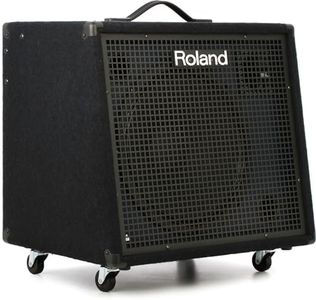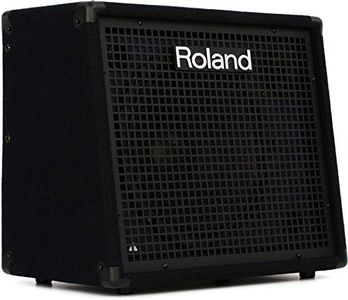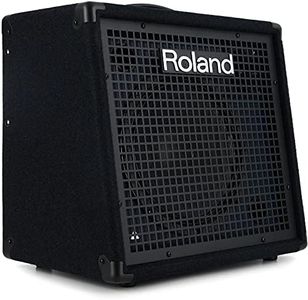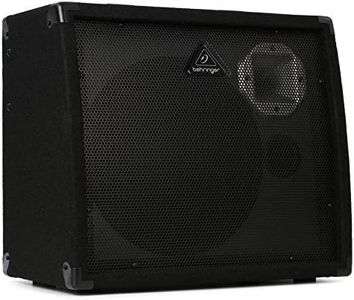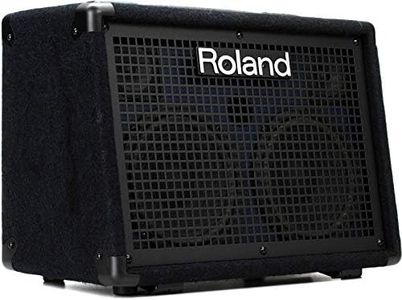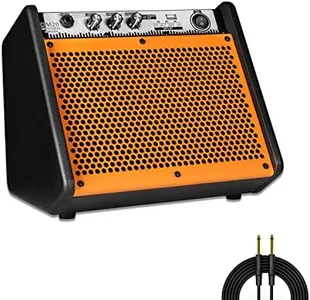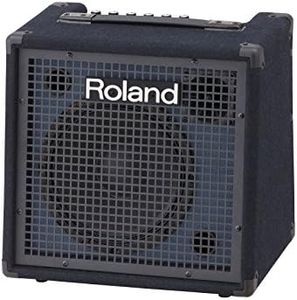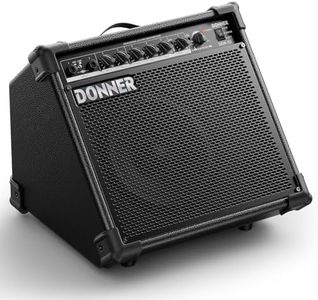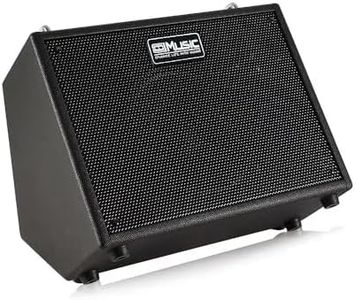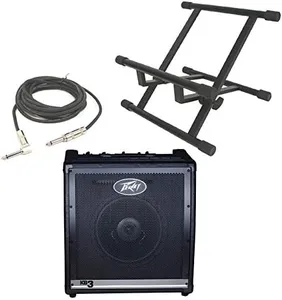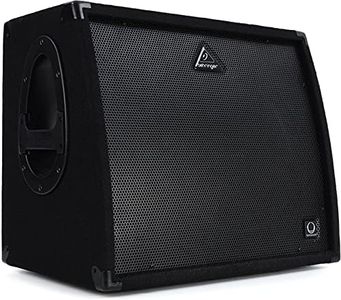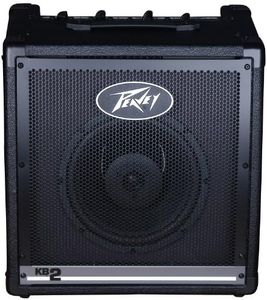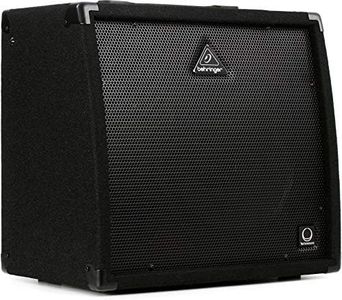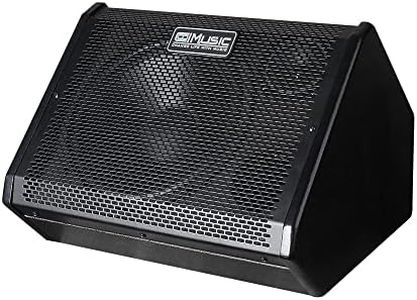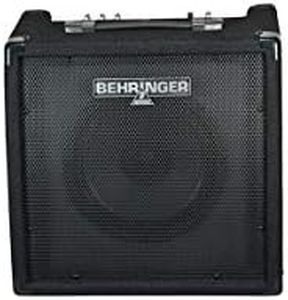10 Best Keyboard Amps 2026 in the United States
Our technology thoroughly searches through the online shopping world, reviewing hundreds of sites. We then process and analyze this information, updating in real-time to bring you the latest top-rated products. This way, you always get the best and most current options available.

Our Top Picks
Winner
Roland 4-Channel Stereo Mixing Keyboard Amplifier, 200 watt (KC-600)
The Roland KC-600 is a powerful and compact 4-channel stereo mixing keyboard amplifier designed for musicians who need reliable sound reinforcement. With a robust 200 watts of power, it delivers impressive audio quality, making it suitable for both practice and performance settings. The custom two-way speaker system, featuring a 15-inch woofer and horn tweeter, enhances bass reproduction and overall sound clarity, which is a significant strength for live performances and studio work alike.
The onboard mixer offers four stereo input channels, allowing for multiple instruments or devices to be connected simultaneously. Features like the master EQ with Shape switch and monitoring functionality on Channel 4 are great for tailoring your sound to suit various environments. The inclusion of XLR mic input and multiple line outputs, along with a headphones output, adds to its versatility.
On the portability front, the KC-600 is relatively lightweight for its power and includes removable casters, making it easier to transport to gigs or rehearsals. The durable metal jacks also suggest good build quality for regular use. The KC-600 does have its drawbacks with a 63.8-pound weight, which might be cumbersome for some users. Additionally, the Stereo Link function allows chaining with another KC-600 for expanded inputs, though this feature may be considered unnecessary or complex depending on individual setups. Ultimately, the Roland KC-600 is a solid choice for keyboard players seeking a reliable, powerful amplifier with good audio quality and flexibility in connecting multiple devices.
Roland 4-Channel Mixing Keyboard Amplifier, 100 watt (KC-200)
The Roland KC-200 is a solid choice for musicians seeking a reliable keyboard amplifier. With its 100 watts of power output, it provides ample volume for small to medium venues. One of its standout features is the redesigned power amp and power supply, which contribute to enhanced stability and improved bass response, making it suitable for various musical styles. The custom two-way speaker system, including a 12-inch woofer and tweeter, ensures good sound quality and clarity.
Portability is an essential consideration for many musicians, and while the KC-200 weighs around 30 pounds, its compact design makes it manageable for transport. It offers four line input channels and a dedicated auxiliary input with both 1/8-inch and RCA jacks, allowing for versatile connectivity options, including the ability to connect a microphone via the XLR input. The master EQ and built-in effects further enhance its functionality, providing users with the ability to tailor their sound.
There are a few drawbacks to consider. Some users may find the weight a bit cumbersome for frequent transport, especially if they have to carry it long distances. Additionally, while the amplifier is designed for keyboards, it may not be the optimal choice for more complex setups requiring multiple effects or extensive customization, as the onboard features are somewhat basic in comparison to higher-end models.
The KC-200 excels in delivering powerful sound and essential features for keyboardists, making it ideal for both practicing musicians and live performers looking for an affordable and reliable amplifier. It’s particularly well-suited for those who value portability and sound quality in a straightforward package.
Roland 3-Channel Mixing Keyboard Amplifier, 50 watt (KC-80)
Most important from
43 reviews
The Roland KC-80 is a compact and reasonably priced keyboard amplifier, offering a solid 50 watts of power. This makes it a good choice for smaller venues or practice sessions. One of its standout features is the redesigned power amp and power supply, which enhance stability and bass reproduction, providing a richer sound experience.
The amplifier's custom two-way speaker system, including a newly developed 10-inch woofer and tweeter, further contributes to its robust sound quality. It comes equipped with three input channels, allowing you to connect multiple instruments at once, and has dedicated auxiliary inputs for additional devices like a phone or tablet. This makes it quite versatile in terms of connectivity options.
The built-in master EQ allows for sound customization, which is a nice touch for those who like to fine-tune their audio output. Additionally, it includes an XLR mic input, line output, headphones output, and a sub output, catering to a variety of performance needs. Durability is enhanced with metal jacks, which should prolong the lifespan of the connections. At 50 watts, it might not be powerful enough for larger venues or outdoor events. The built-in effects are also somewhat minimal, limiting the creative possibilities for some users. Despite these limitations, the KC-80 is a solid, portable option for keyboard players needing a reliable and versatile amplifier for small to medium-sized gigs.
